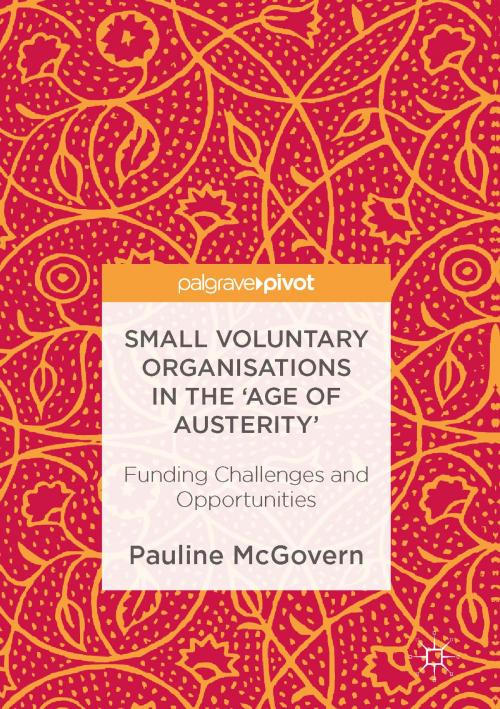Small Voluntary Organisations in the 'Age of Austerity'
Funding Challenges and Opportunities
Nonfiction, Social & Cultural Studies, Political Science, Government, Social Policy, Social Science, Sociology| Author: | Pauline McGovern | ISBN: | 9781137521880 |
| Publisher: | Palgrave Macmillan UK | Publication: | December 30, 2016 |
| Imprint: | Palgrave Pivot | Language: | English |
| Author: | Pauline McGovern |
| ISBN: | 9781137521880 |
| Publisher: | Palgrave Macmillan UK |
| Publication: | December 30, 2016 |
| Imprint: | Palgrave Pivot |
| Language: | English |
This book analyses the dynamics that underlie the awarding of public funding to small voluntary organisations in the UK. Using Bourdieu’s later work on state power, the author argues that these competitions for grants, loans and contracts are neoliberal funding ‘games’. Such games tempt grassroots organisations, she demonstrates, not just because they provide funding but because they confer a symbolic profit by defining the 'winner' and improving status. Taking part in these neoliberal funding games, however, can adversely affect the structure and development path of these organisations. Yet her conclusion is upbeat, focusing on the opportunities as well as the challenges that neoliberalism offers grassroots organisations in recompense for the moral weight that they hold within state discourse. Within supportive coalitions and with a robust evidence base that re-politicises neoliberal orthodoxy, in fact, they can choose to negotiate alternative futures within state policy or to withdraw from these funding games altogether. This thought-provoking work will appeal to students and researchers of sociology and social policy, along with scholars of Bourdieu, civil society and the voluntary sector.
This book analyses the dynamics that underlie the awarding of public funding to small voluntary organisations in the UK. Using Bourdieu’s later work on state power, the author argues that these competitions for grants, loans and contracts are neoliberal funding ‘games’. Such games tempt grassroots organisations, she demonstrates, not just because they provide funding but because they confer a symbolic profit by defining the 'winner' and improving status. Taking part in these neoliberal funding games, however, can adversely affect the structure and development path of these organisations. Yet her conclusion is upbeat, focusing on the opportunities as well as the challenges that neoliberalism offers grassroots organisations in recompense for the moral weight that they hold within state discourse. Within supportive coalitions and with a robust evidence base that re-politicises neoliberal orthodoxy, in fact, they can choose to negotiate alternative futures within state policy or to withdraw from these funding games altogether. This thought-provoking work will appeal to students and researchers of sociology and social policy, along with scholars of Bourdieu, civil society and the voluntary sector.















